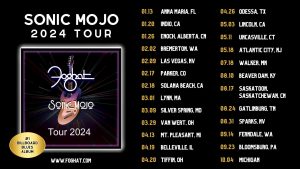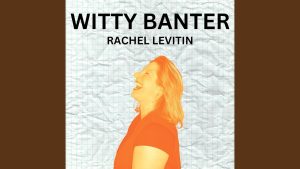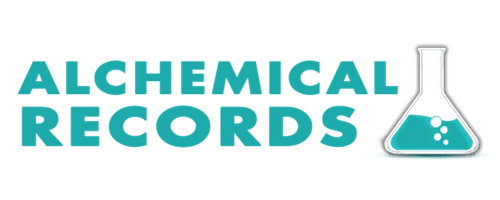
The 5th Annual DC Music Summit wrapped up on Oct. 16, with a flurry of fantastic panels, a keynote speech by Anwan “Big G” Glover, performances, and other events that spanned the vast array of music happenings and research within the D.C. music scene. Held at the Duke Ellington School for the Arts, the Summit’s core values of diversity, community, mastery, and service were all on full display as music workers gathered to share their experiences and insight from the ever-growing music industry.

For record producer and mix engineer, Chris “Von Pimpenstein” Carter, the Summit was an opportunity to share his knowledge of working collaboratively with artists in the act of mixing an album or record. In his presentation, “The Business of a Major Label Quality Mix – For Artists (and Mix Engineers),” he discussed methods of maximizing the results of these relationships by offering tips on some of the common pitfalls artists can find themselves in when it comes to working with a mix engineer for the first time.
“It doesn’t seem like it, but mixing is really a team effort,” he said confidently. “Even though these days, the mix engineer is almost always working remotely, everything that happens up to the point the mix engineer receives the tracks is in the hands of the artist (and producer, label, etc.).” He talks about how impactful the artist’s decisions are during the initial production process and that clear communication of their creative vision is key when those tracks are handed off to be mixed.
“After the mix engineer starts work” he continues, “the artist is still heavily involved because once the mix engineer sends their first mix to the artist, the artist needs to provide feedback on it. At that point, mix decisions are largely in the hands of the artist as they instruct the mix engineer on what changes should be made, and the mix engineer executes those changes.”
When it comes to those changes, Carter says that examples and detailed notes about each track given to the mix engineer beforehand is essential – ideally, in a written list so that they will be able to remember everything as they work through the different songs. Given that mix engineers tend to work remotely in their own home studios, having conversations can be helpful, but when it comes time for revisions, he hopes that artists come prepared with bullet lists to make sure that everything gets done efficiently.
“Artists who only rely on verbally communicating the changes they want almost always forget something during the conversation. The mix engineer must also be diligent in making sure that if there is anything they are confused about in the revision notes, they make a phone call or, if it’s really simple, a text can usually resolve the confusion quickly without disturbing the artist if they are busy on tour, or at a day job.”

When asked about the most common pitfalls artists stumble into when working with mix engineers, Carter offered some helpful tips.
1) Make sure that the agreement is written down, including the number of songs, the agreed prices, and how many revisions need to be done – things that can easily be handled in 3 sentence email.
2) Hiring a studio instead of hiring a specialized mix engineer.
3) Beware of discounts that aren’t really discounts.
4) Be sure to provide good revision notes.
5) Find a mix engineer who is good at taking notes and won’t argue with the artist about key revisions – i.e., someone who isn’t egotistical or dismissive.
6) Make sure to get all the standard mix passes that come with a mix engineer.
Like many amazing offerings throughout the Summit, Carter found himself a platform to educate people about both his specialization and what his ideal relationship with his artists should be like.

It’s these succinct sound bites and action items that make these sessions invaluable, much like hip-hop artist Marc Toureille (also known as Marc 2Ray) did with his own session, “A Tool for Education and Therapy,” where he discussed his experience with Floortime music therapy and its effects on kids – especially those with autism, with whom Toureille has over 14 years of experience working with.
For those who are unaware of what Floortime is (like I was before writing this article), it is a play-based therapy developed by Stanley Greenspan, Ph.D., in the 1980’s that works on social and emotional development, problem solving, speech, occupational therapy and more.
“Play, being highly motivating for kids, increases their engagement, and they are excited to participate in the process” Toureille describes, “much more so than some therapies where the child is at a desk repeating information. Where music comes into play (pun intended), is how it can be used to engage the child and set a foundation for a game that can be utilized to target therapy goals.”
The idea of a play-based approach to therapy is extremely inviting because it allows creativity to flourish and encourages the possibility of multiple modes of expression coexisting in the same space. For people with autism, it’s easy to see how this could be a game changer – the ability to create their own sounds and stories through music can help to find a more joyful and playful sense of self in relationship to others.
When it comes to parents bringing these ideas into the household, Toureille says to, “Always be available and approachable for your child. The trust that a child feels for their parent, caretaker, or loved one is key for development. Also, for a lot of children on the autism spectrum, music can be a doorway to working on emotional development. As music has a very undeniable way to convey feelings through a song, many children may associate a certain song with a particular emotion. In some cases, this can even be a way for the child to express how they feel to others around them. Working on emotional development with a child can be a hard task, but music can provide a unique foot in the door.”
“I’ve seen tremendous progress with kids interacting with each other through the foundation of music” he continues. “Whether it’s taking a song they know and creating new silly lyrics together, or playing a game acting out a song, it often increases the engagement, not only from child to therapist, but from child to child. This fluid peer engagement is critical to learn at a young age to set a child up for success in navigating social situations later in life.”

Within these two vastly different presentations, you can feel how expansive the DC Music Summit has become in its 5-year tenure as a gathering place for new and blooming ideas about the role of music as both a societal force or specialized career path. If you were not able to make it to any of this year’s offering, I encourage readers to check out the vast catalogue of sessions that show a diverse breadth of exciting ideas percolating within the music industry.
Whether you are looking to make a career out of music, just looking to expand your horizons, or have a specialized interest in the ways music can be mobilized, it’s clear that the Summit continues to gather momentum. Be sure to follow the Summit on their official website, Facebook, YouTube, and LinkedIn for updates on next year’s gathering.

Charlie Maybee is a dancer, musician, educator, and writer based in Charleston, South Carolina who currently teaches with the Dance Program at the College of Charleston. His primary work as an artist is with his performing collective, Polymath Performance Project, through which he makes interdisciplinary performance art that centers tap dance as the primary medium of expression and research. He also currently plays rhythm guitar for the Charleston-based punk band, Anergy, and releases music as a solo artist under the name Nox Eterna.
Subscribe to Alchemical Records today to support our efforts online and in print.
Join the Alchemical Records Street Team to promote these and other artists, live music, and music community organizations & events while receiving cool perks from artists throughout the region.

Recent Articles March 21st. A day that I will always think of amazing album releases. DC-based musician, producer, and singer-songwriter, Rachel Levitin, released Witty Banter

Alchemical Records is a Washington, D.C. based music publication. We cover the Washington, D.C., Baltimore and Richmond, VA metro area music scenes, including band interviews, articles about your favorite musicians, new music and concert dates.